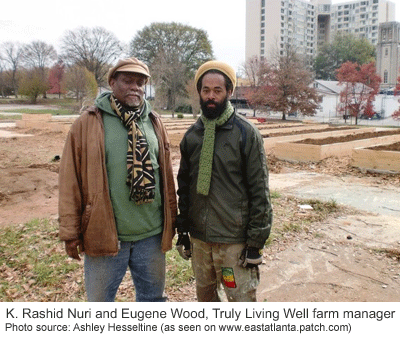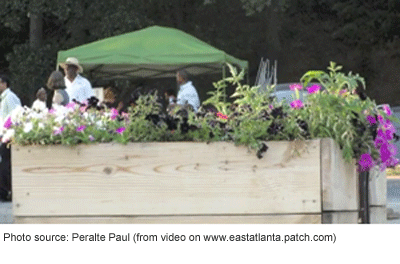Related Posts
var a2a_config = a2a_config || {};
a2a_config.linkname = "Grow Where You Are";
a2a_config.linkurl = "http://mondaymorning.web.unc.edu/2011/05/25/grow-where-you-are";
Grow where you are
That’s what Rashid Nuri says in this interview for Patch. He’s talking about growing local food and how growing local can change a community for the better. My colleague Roy Baron (father of UNC student David Baron, who started Hope Gardens here) sent this story. It’s exciting and uplifting. Nuri calls the movement he is leading in the Sweet Auburn neighborhood of Atlanta transformational pedagogy. He says when people grow food themselves, locally, they transform the soil, what they eat, the local economy, community and themselves. In public health, we want to change the world—today. But maybe, if we started by transforming our local communities and economies, all over the world, we really could change the world.
Maybe this hope is naïve. But so often, simple ideas underlie great social movements. Microcredit, for example, even though its reputation has been tarnished by overzealous lending, is like that. Bloom where you are planted, do the best you can with what you have, grow where you are, be the change you want in the world..., these phrases stick, because there is truth in them. How can we transform anything else if we cannot transform our own environments? How can we change others if we cannot change ourselves?
People like Rashid Nuri inspire and move us toward transformation. Still, the scientist in me wants to collect data on these projects and be really sure that they accomplish what they intend. If they do, they deserve to be disseminated across the world.
Happy Day! Eat your local fruits and veggies. Barbara
